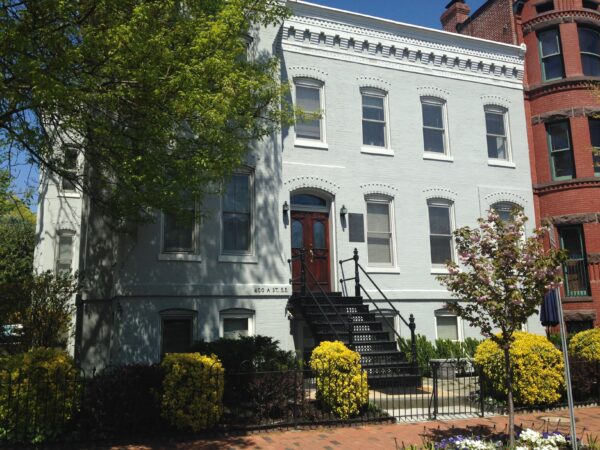
The AHA Townhouse
Historians’ friendships are remarkable things. They intertwine the professional with the personal, the critical with the encouraging, and revolve around a shared commitment to the past (perhaps over an adult beverage).
Our friendships don’t have to be particularly intimate to make our scholarship better. Calls to hiveminds among our Facebook friends (some of whom are closer than others) allow us to think through new syllabi and harvest starting points on unfamiliar subfields. Closer friends can be the people we trust to read that first tentative draft of a grant proposal or an article. And “Can I pick your brain about something?” has undoubtedly launched prizewinning scholarship from coffeed cogitation.
Scholarly friendships take root and flower, sometimes from nodes within professional networks. But where networking establishes historians in relationships that can be of great utility to scholarship as well as personal advancement, friendships incorporate a great deal of trust. Most people in our discipline have felt vulnerable about their work at some point, and friendships can provide a safety net that encourages risk-taking. It’s not that you want your friends only to buoy you—their critical, honest evaluation of your work improves your argument and anticipates other historians’ critiques. This is not the typical “ask” from someone in your network.
For some time, too, friendships have helped diversify the professoriate by supporting women, people of color, and LGBTQ people in their career paths. Friendships that stretch beyond a single campus can ameliorate the alienation of being “the only one” in a department, university, or professional association. The risks and consequences of pushing up against barriers often require mutual support that goes beyond the purely professional. Women historians of many backgrounds have written about how friendships that arose from professional networks (particularly the Berkshire Conference) helped them stay in the discipline. History is all the richer for the work produced over the years that might not have emerged were it not for the sustenance of friendship.
Beyond cementing affective ties, scholarly friendships involve uncompensated work. The amount of time we spend probing one another’s prose for historical soundness, syntactical elegance, and interpretive originality isn’t reflected on our CVs. It doesn’t count for tenure or a renewed appointment. Students don’t know about it. It’s recognized, if anywhere, in monograph acknowledgments. These few pages are important. But the gifts of our friends—for surely that’s what this unpaid work amounts to—make our scholarship better.
This work is licensed under a Creative Commons Attribution-NonCommercial-NoDerivatives 4.0 International License. Attribution must provide author name, article title, Perspectives on History, date of publication, and a link to this page. This license applies only to the article, not to text or images used here by permission.


